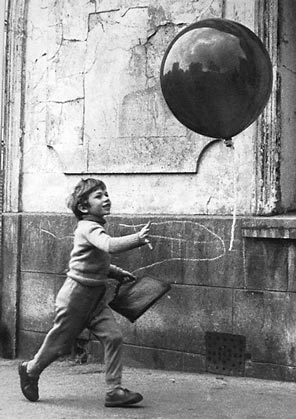Interview: Geoff and Kristin Gembala on Family Communication
Posted on May 4, 2008 at 8:00 am
Geoff and Kristin Gembala help families communicate better. They exemplify their commitment to true heart-to-heart communication in an atmosphere of respect and focused attention, which makes talking to them a genuinely joyous and inspiring experience.
How did you get started?
Geoff: A couple of years ago a friend’s husband was battling cancer and was diagnosed terminal. This family and ours were in the carpool line talking about prayer and they said they prayed for our daughter who was dealing with some health issues. Kristin came home and told me that and we thought about how this family was about to lose the husband and father and they were taking time out of their life for us. How profound that was. We started that same ritual as a family, praying for others, and we awesomely loved doing that as a family. We thought it would wonderful to share that experience. It was hard to find materials for all age groups, so we created a light interactive book, Kids Chat God’s Spirit, that parents could read before bedtime prayer. And now thousands have been distributed.
Kristin: Just on the family values part of it, children give you their most valuable information at bedtime, the things that actually mean something. We need to find a way to talk about the things that matter or all we do is talk about the baseball schedule and what to wear the next day. We all need that communication.
What came next?
Geoff: We said, “Let’s do a marriage book.” People are tired and have very little time together. We wanted to show them how to use that time to cover the important information. Our whole theme is just communication and the niche we’ve tried to approach is short quick tidbits. We know busy families can find it tough to carve out half an hour or 45 minutes. And we want them to all be charitably based. That led to write the book and build the publishing company where the goal is to give away the profits.
Kristin: Our theme is change lives and give to others.
Geoff: The money from the first book went to the Pujols Family Foundation (he’s a player for the Cardinals and the foundation helps people with Down syndrome and their families) and the St. Louis Children’s Hospital.
What are some of the biggest challenges to effective communication that families face?
K: The way we’ve seen the world change even over the last decade, it’s a blessing and a curse at the same time. We’re so information filled. We’re smarter but we’re lonelier. Only 63 percent of American children grow up with both biological parents, the lowest figure in the western world.
Geoff: According to Divorce Magazine, fatherless homes account for 64 percent of youth suicide, 90 percent of homeless runaway children, 80 percent of children with behavior problems, 71 percent of high school dropouts, 81 percent of youth in prison, 50 percent of teen mothers. A lot of this is because both parents and children do not feel they have someone to talk to, someone to listen.
Kristin: We wanted to help couples talk about dreaming what does home mean, what are the mutual goals, how children are an added benefit and valley. They can read through something important and talk about it — and journal.
Geoff: The books I’ve gotten the most out of are the ones you have to reflect on. Very few people sit down and do things together anymore.
What example do children need to see in their parents?
Kristin: The greatest gift to give your children is your marriage. What they learn, how they are in the world socially, how they reflect on authority is what they get from you. We try to set an example of being respectful and being kind — we’re probably over the top!
Goeff: I went to a ball game with a friend recently and thought that just by admitting you like and respect your wife you feel you’re bragging, almost arrogant.
Kristin: One of the first signs a marriage is going backwards is talking badly about your spouse.
What has the response been to your work?
Kristin: They really appreciate the accessibility of it. It is written in a format so kids can draw on it, like a coloring book: what’s special to you, who coaches you.
Geoff: We did a seminar and people were grabbing more copies. There’s been a huge outpouring of thankfulness from people because it helps them increase their communication with their children. Many people don’t have anything to say to children because they don’t know how to talk to their children. But it’s not as difficult as people think.
What do parents need to remember about communicating with children?
Kristin: You have to go where their interests are. They’re all different. They have different interests and need different types of love. It is important to acknowledge them as their own person. They are not like each other and not like you. You have to keep at it, don’t ever give up. And remember even though they act like they don’t want to talk to you, they still need to, it’s your responsibility. They are not going to be perfect, but if you let them know you care and you listen to them you can stack the deck in their favor.
I lost my mother when I was young. For those of us fortunate enough to team parent, you have to be on the same page and the same wavelength, but also balance each other out.
Why has communication become so difficult?
Geoff: I blame it on technology. A friend of mine returns over 100 emails a day. We need more human contact. One thing I see with families and couples is that most people say they want a better relationship but don’t know how to get started. We help them to get started; where they go from there is up to them.

 Fifteen-year-olds make some poor choices. But while they may feel like the whole world is watching, usually it is just family and friends. Miley Cyrus is not just a fifteen-year-old. She is not even just a superstar, though she did have the top grossing concert tour in the country last year. She is also a brand. Over one billion dollars worth of merchandise featuring Miley and the character she plays on The Disney Channel’s “Hannah Montana.” The success of those products depends on her squeaky clean image and parents have been reassured repeatedly that Miley is a sensible, responsible girl with grounded parents and that she will not create the embarrassment of former Disney stars like Britney Spears, Lindsay Lohan, and “High School Musical’s” Vanessa Hudgens. But Miley has hit the headlines with some photos taken by Annie Leibovitz for Vanity Fair. By the tabloid Lohan/Spears standards and even the far lesser escapade of Hudgens, whose private nude photo for a boyfriend made it onto the Internet, the Cyrus flap is quite mild. The photo that has attracted the most publicity shows her bare back, holding a sheet up to her front.
Fifteen-year-olds make some poor choices. But while they may feel like the whole world is watching, usually it is just family and friends. Miley Cyrus is not just a fifteen-year-old. She is not even just a superstar, though she did have the top grossing concert tour in the country last year. She is also a brand. Over one billion dollars worth of merchandise featuring Miley and the character she plays on The Disney Channel’s “Hannah Montana.” The success of those products depends on her squeaky clean image and parents have been reassured repeatedly that Miley is a sensible, responsible girl with grounded parents and that she will not create the embarrassment of former Disney stars like Britney Spears, Lindsay Lohan, and “High School Musical’s” Vanessa Hudgens. But Miley has hit the headlines with some photos taken by Annie Leibovitz for Vanity Fair. By the tabloid Lohan/Spears standards and even the far lesser escapade of Hudgens, whose private nude photo for a boyfriend made it onto the Internet, the Cyrus flap is quite mild. The photo that has attracted the most publicity shows her bare back, holding a sheet up to her front. Two recent films showed the influence of this classic French film about a little boy befriended by a red balloon and now the original is available on DVD for the first time. “CJ7” from China and “The Flight of the Red Balloon” from France (with a Taiwanese director) both make direct visual references to the 1956 short film, the only Oscar-winner for best screenplay without a single line of dialogue.
Two recent films showed the influence of this classic French film about a little boy befriended by a red balloon and now the original is available on DVD for the first time. “CJ7” from China and “The Flight of the Red Balloon” from France (with a Taiwanese director) both make direct visual references to the 1956 short film, the only Oscar-winner for best screenplay without a single line of dialogue.